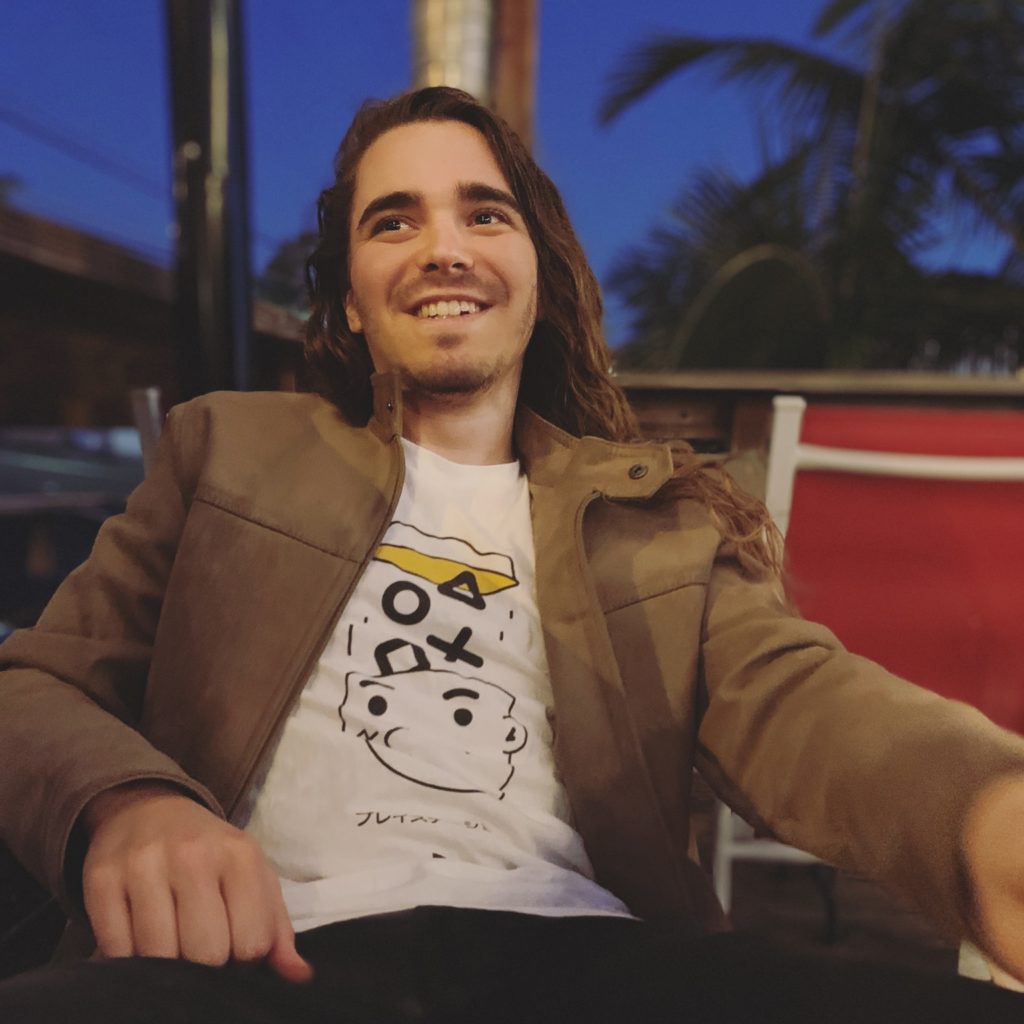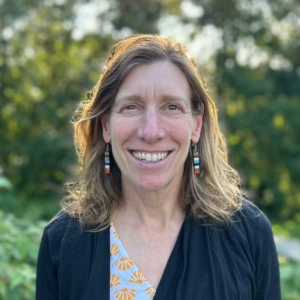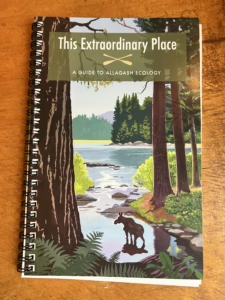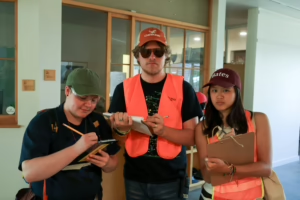Our alumni go on to all kinds of careers, and most often, we highlight those working in ecology and the outdoors. So, our ears perked up when we heard that former staff member and Maine Coast Semester at Chewonki alumnus Corbin Percy recently won a PlayStation hack-a-thon that makes video games more accessible to users with colorblindness. Very cool and a bit atypical (at least for a Chewonki alum). How did he get from here to there?
“Video games have always fascinated me,” says Percy, who grew up in Dresden, ME, and attended Wiscasset Middle High School. “As a kid, maybe it was escapism. I grew up in a rural town and was only allowed so many hours of gaming,” he explains. “I liked the interactivity of it.”

Percy started working at Chewonki the summer before his junior year of high school. At first, he was a support staff and later joined the facilities team. “That was the best summer job. I loved going around campus landscaping, fixing trailers, and helping people with basic carpentry.” He also participated in Maine Coast Semester at Chewonki during his junior year of high school and a few leadership trips.
“People are often surprised at my relationship with technology and how connected I am,” he says. “But, I think there’s a lot of crossovers. You don’t have to be a hermit out in the woods to enjoy the outdoors.” Gaming has become more mainstream, too, says Percy. “The old generalizations and stereotypes no longer apply.” Percy followed his interest in gaming to Champlain College in Burlington, Vermont and later ended up at Playstation when the startup he was working for (a game streaming platform) was purchased.
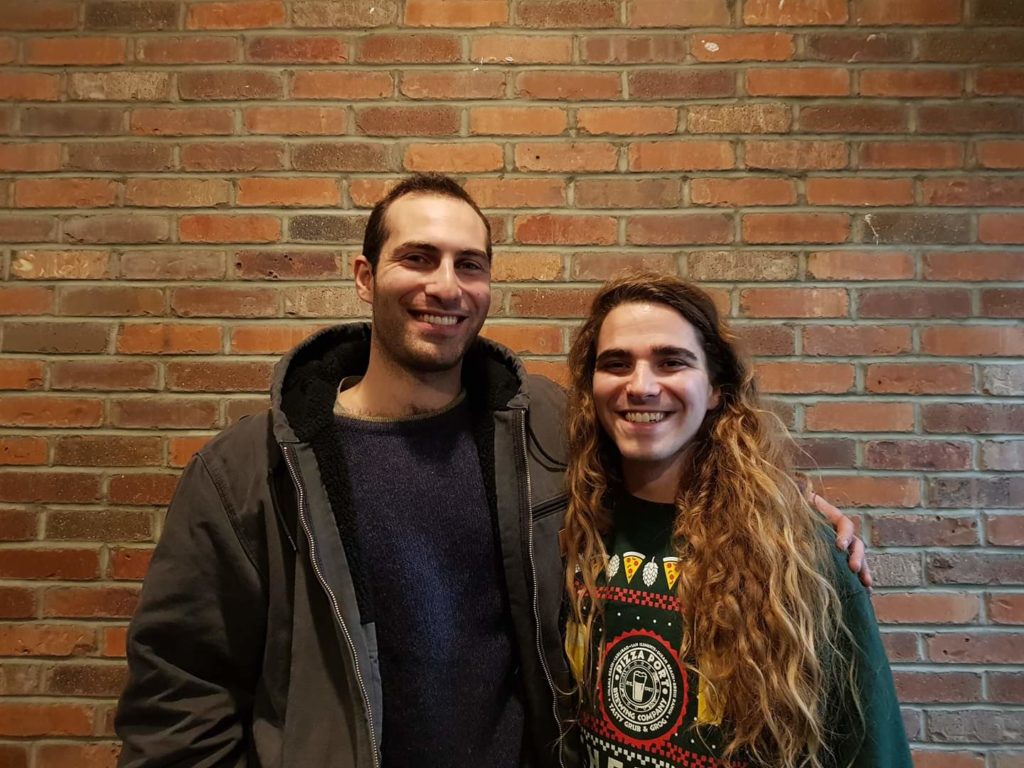
As a programmer, Percy is particularly interested in accessibility. “With games, there should be a level playing field,” he explains. The gaming industry has been slow to adapt to different needs, but Percy has seen this change in the last five years. Playstation sponsors internal hack-a-thons annually to encourage creativity and innovation and Percy has used these opportunities to flesh out and prototype new accessibility solutions.
“The biggest challenge when it comes to a hack-a-thon is coming up with a good idea,” says Percy, “it has to be technically feasible and also add value.” With his color blindness filters, for example, he didn’t invent anything new. Instead, he put two separate strands of research together in a novel way using code he engineered. The resulting program could retrofit older games licensed by his company’s streaming service with modern color blindness accessibility technology. (If that doesn’t make sense, think about it like Netflix giving viewers the option of turning on closed captioning for older films, for example).
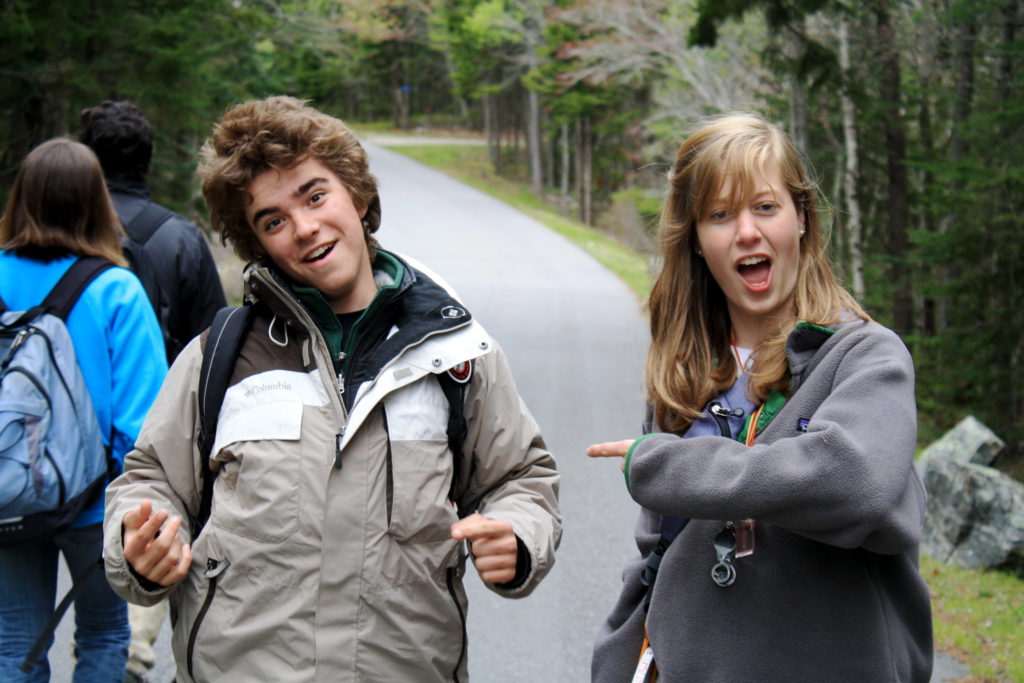
Percy’s work didn’t go unnoticed – PlayStation awarded him prizes in both 2018 and 2019. His work was was an early precursor of change within the gaming industry. “Now,” says Percy, “the technology is standard on many platforms. You can just flip a switch.”
And, though his current life may seem a far cry from his days in Maine moving bunk beds, washing dishes, and studying ecology, he sees some similarities. “Being employed [at Chewonki] is not just a job – you’re part of a community. I remember family-style lunches, looking after each other and seeing all the things to go into creating a self-sustaining community,” he says. The gaming industry is about connection, too. “Games can be the foundation for life-long communities that people always return to,” he says. A lot goes into these virtual environments. “Some are the summation of tens of thousands of hours of work,” explains Percy, that transcend their origins to become “works of art.”
We applaud Corbin for his inspiring work and look forward to following his work into the future. We also invite you to learn more about gaming accessibility in honor GAAD (Global Accessibility Awareness Day), which was May 20th.
